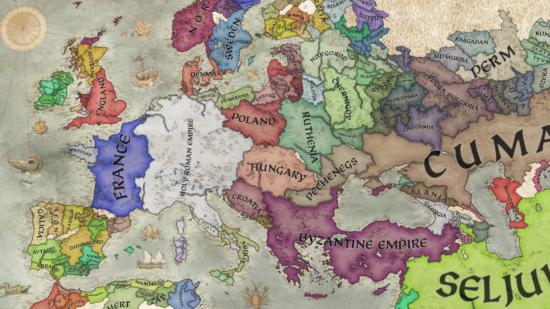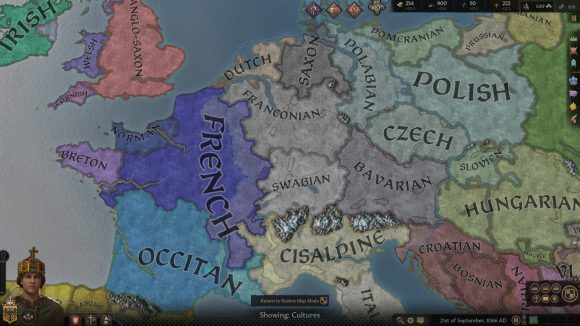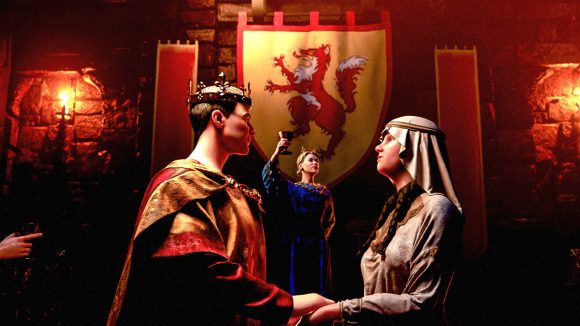Crusader Kings 3’s first beefy expansion will majorly shake up the grand-strategy game’s cultural system. Letting players ‘hybridise’ cultures, as they merge with others to create new cultural groups, the Royal Court DLC, in typical Crusader Kings 3 spirit, will allow for some wacky player combinations. But Paradox says this process of cultural blending is solidly inspired by history, and is intended to bed more simulation into the game.
Speaking to Wargamer, Alexander Oltner, game designer on Crusader Kings 3, says the new hybridisation feature adds a new layer of simulation to the game, and replaces an existing culture system that doesn’t adequately reflect historical transformations. “It’s definitely there to represent history,” Oltner says. “The static nature of cultures in the game, where the only opportunity you have is to culture-convert provinces, is not at all how it happened historically.”
“We try to keep [cultural hybridisation] restricted in the game, so not everything diverges, or hybridises all the time,” he adds. “But I think the most historical thing would be to have every single culture have diverged by the end of the game.”
“The medieval era was an era of change; cultures diverged, and they melded together constantly.”

You might choose to merge with another culture in order to obtain a particularly favourable Pillar or Tradition that they possess, while clinging tight to the best features of your existing one, as you create a brand new cultural group of your own. It’s something that players are incentivised to do for the benefit of their Realm.
However, hybridisation will not be automatic. Oltner says that, although cultural adaptation was common, it wasn’t arbitrary, and players will have to meet some requirements before they can start merging with a foreign group.
“One of the most famous examples is Normans and Anglo Saxons eventually becoming English. But there are plenty of other examples across the map, all with a common denominator that there should be at least some level of acceptance between the cultures.”
“You can’t just force a hybridisation, as that would be something like the Anglo Saxon lands ruled by Normans. That’s just rulership of one culture over another.”
While Oltner says a great deal of thought was given to how the hybridisation system should operate, he says it ultimately came down to “what happened historically, and how can we represent this in a fairly accurate way, while still keeping it somewhat character-focused.”
“And that’s a key concept in the game. Everything should be driven by the characters, in one way or another.”
Look out for our full interview with Alexander Oltner, coming soon, in which we explore how Crusader Kings 3 will incentivise frivolity, the major restructuring coming to its culture system – and why you’ll be spending a lot more time sitting on your throne.
Missed the announcement? Find all the details in our news coverage of Crusader Kings 3’s Royal Court DLC. Or, if you prefer smokestacks and wrought iron, check out the reveal of Victoria 3 instead!


